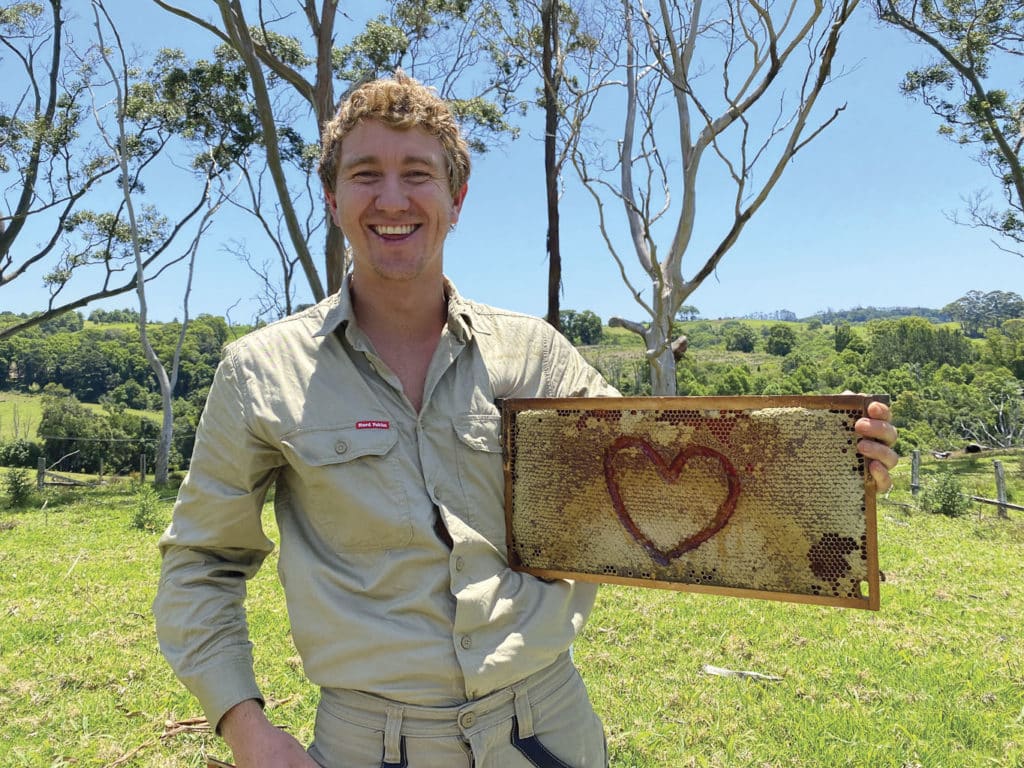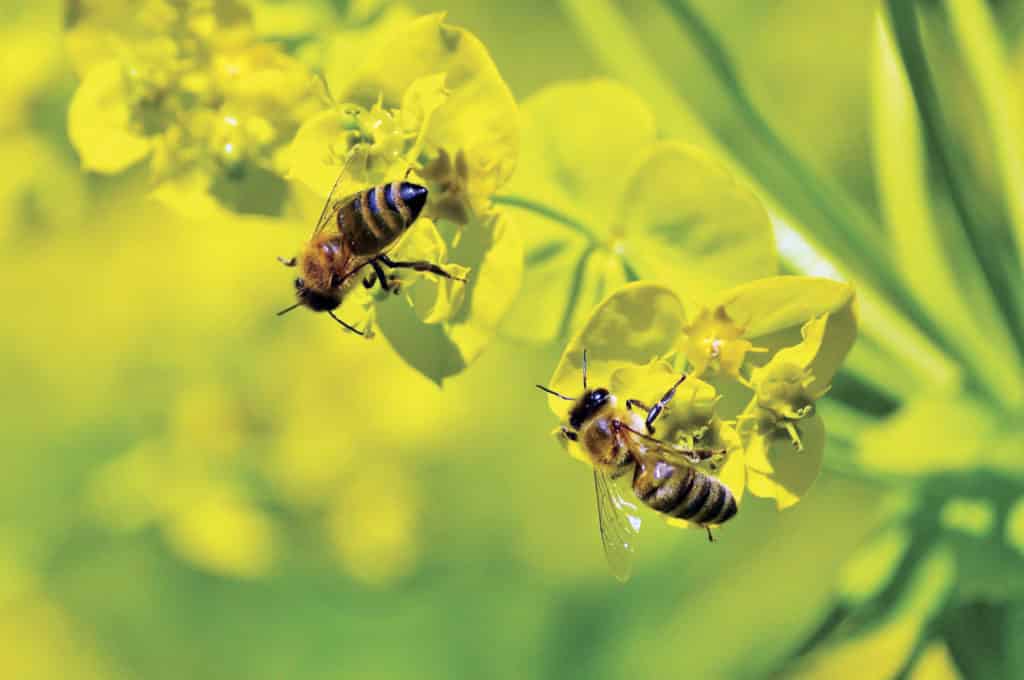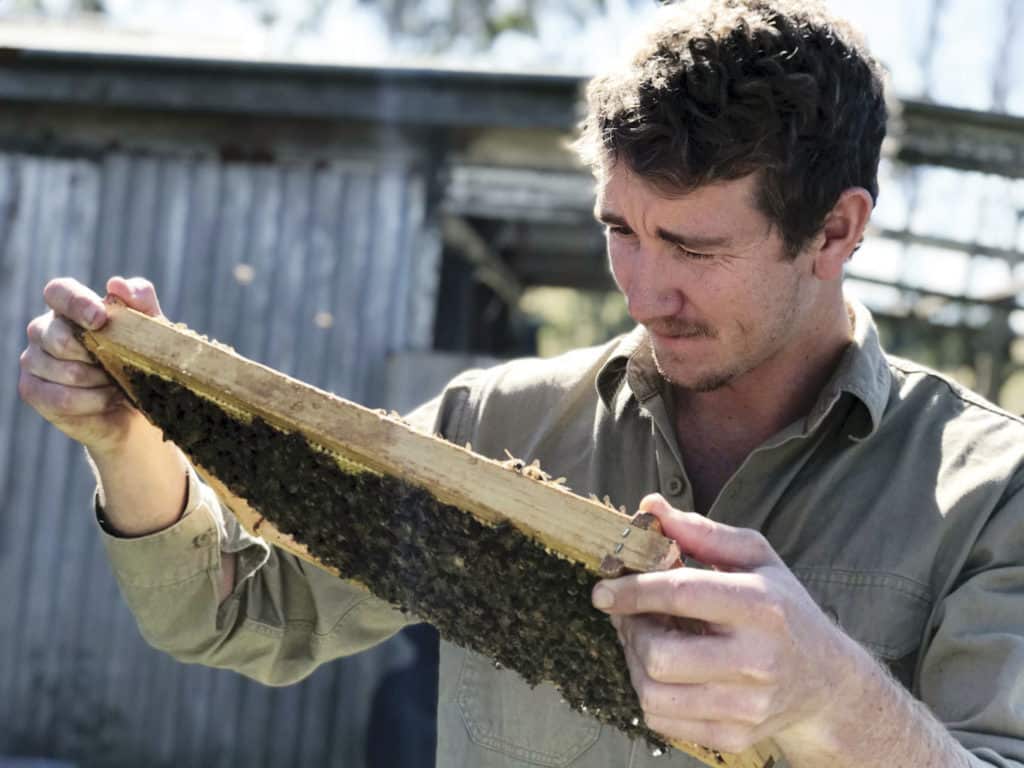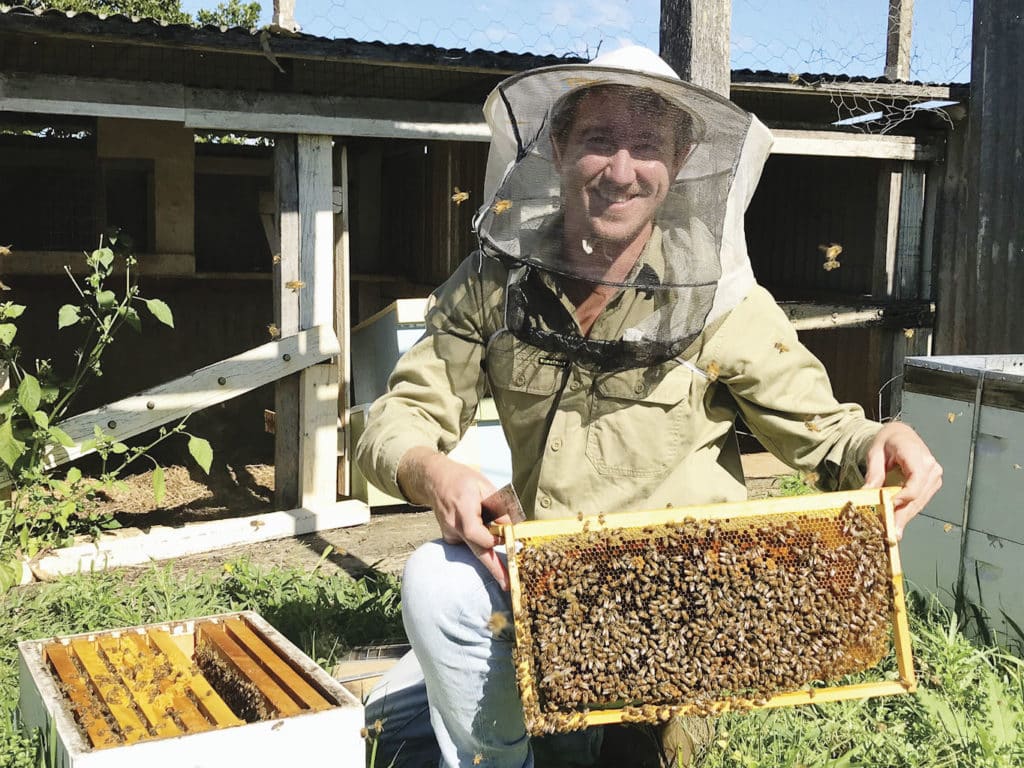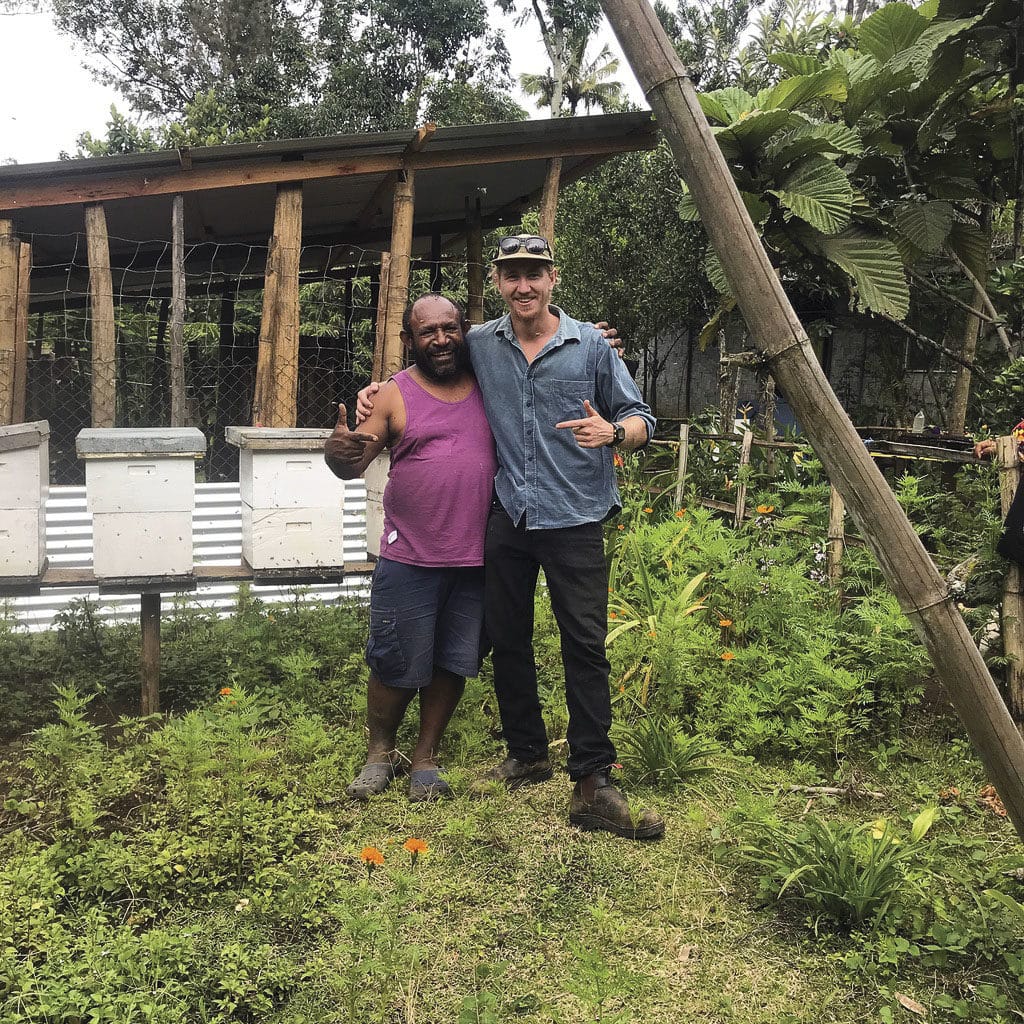PEOPLE
The buzz on Dr Cooper Schouten – the bee guy changing lives
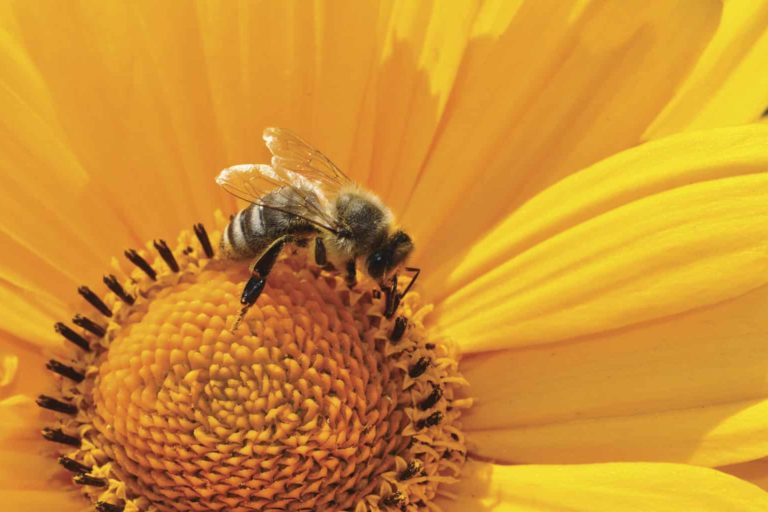
WORDS: Yasmin Nelson PHOTOGRAPHY Supplied
Southern Cross University busy bee Dr Cooper Schouten is empowering agricultural development in Pacific nations through beekeeping.
DR Cooper Schouten loves a good bee pun. When he’s not listening to Bee-yonce, The Bee Gees or watching The Bee Movie, the 29-year-old Southern Cross University graduate is travelling through the Indo-Pacific region, working with locals to create sustainable incomes through beekeeping.
“It doesn’t sit well with me, in my heart, knowing how many people there are in the world who go to bed at night hungry every day and don’t have access to clean water, education, healthcare and sustainable or safe forms of income.”
Born and raised in Yamba, Cooper began working as a beekeeper when he finished high school. After graduating from Southern Cross University with a Bachelor of Environmental Science with first-class honours in 2015, he undertook his PhD, investigating the causes and effects of international aid and agricultural interventions.
Now working as a lecturer at Southern Cross University, Cooper’s latest work with his colleagues consists of releasing a compendium of bee research spanning back to 1962, when the ‘Honey Act’ was introduced. The act was the first step towards professionalisation of the industry in Australia and implemented a compulsory levy of one-half penny per pound on honey produced and sold.
The compendium is a historic and important advancement for beekeeping knowledge, with every research report meticulously summarised. It contains more than 400 pages of information, an invaluable ‘Australian bee research bible’ for the industry.
“Many of these old documents were hand-typed, and we had to do a lot of treasure hunting to find these old reports and bring them back from the grave,” he said.
In line with the AgriFutures Honey Bee & Pollination Strategic RD&E Plan (2020-2025), the project was funded by AgriFutures Honey Bee and Pollination Advisory Panel with matching contributions from the Australian government.
“The better we understand the past, the better we are prepared for the future,” said Cooper.
Currently based in Fiji and PNG, Cooper is engaged in a four-year project funded by the Australian Centre for International Agricultural Research (ACIAR), which sees him working with government organisations, biosecurity, private sector and local beekeeping associations to improve outcomes for local beekeepers and their communities.
“The project has several goals,” says Cooper, the project leader. “We’re trying to make beekeeping more inclusive, tackling honey bee pests, disease and biosecurity challenges, developing genetic improvement programs, investigating marketing economics and honey bee nutrition.”
Cooper is a guest at the home of the Fiji Beekeepers Association president, Mr Nilesh Kumar, whose home is made from honey … metaphorically. Nilesh earned about $A10,000 a year as a teacher before he took up beekeeping, with the extra income he has generated since enabling him to build a beautiful home for his family.
It’s a success story the ACIAR project aims to replicate, with projections that 500 beekeeping families in Papua New Guinea and 400 in Fiji will have doubled their annual household cash income within five years of completing the training.
“You conduct some beekeeping training and then suddenly, they’ve multiplied their hives, they’re selling a lot of honey, they’ve tripled their production and the grass roof of their house isn’t leaking anymore. They’ve been able to pay to get a tin roof on there, which really puts a smile on my face,” Cooper says.
When you see the young and inspiring beekeeper working on the field, you will quickly notice that Cooper doesn’t seem to be phased by a bee sting.
“You definitely get desensitised to it. You don’t swell up as much, but it doesn’t hurt any less,” he said.
Cooper is quick to stress the importance of education, extension and training in successful beekeeping, both overseas and in Australia.
“We can’t just expect bees to be healthy and happy if we just stick hives out in a field or put them out on a patio. Bees are just like any other type of livestock. You’ve got to pay attention to the core pillars of good genetics, nutrition, pest and disease and all the available technologies,” he says.
When Cooper is not overseas, you’ll find him researching or teaching Regenerative Agriculture at Southern Cross University. In 2021, Dr Cooper Schouten was recognised as the Early Career Alumnus of The Year for his impressive academic work to date.
Work is a pleasure for Cooper, who says his colleagues are an endless source of inspiration.
“You just don’t know who you’re going to bump into at SCU. You go out to get some lunch and you bump into all these amazing people who have dedicated such a significant proportion of their time, life and resources to understanding something,” he says.
Cooper’s roles at SCU have seen him connect with people from remote places all over Australia. He hopes to see more enthusiastic young people enter and grow the agricultural industry.
“Lots of people think farming is sitting on a tractor. It’s not. Farming is cool and it’s inexorably linked to community welfare and the start of the environment. There are a lot of rewarding, exciting and innovative jobs in the sector,” he says.
“I want to work with and find ways to support the next generation of young and enthusiastic people keen to make the industry more profitable and sustainable.”
The future for Cooper and beekeeping will no doubt ‘bee’ adventurous and filled with plenty more sweet bee puns.
“Yeah – there’s definitely no shortage of bee puns. I’m all for it and I encourage it,” he says.


